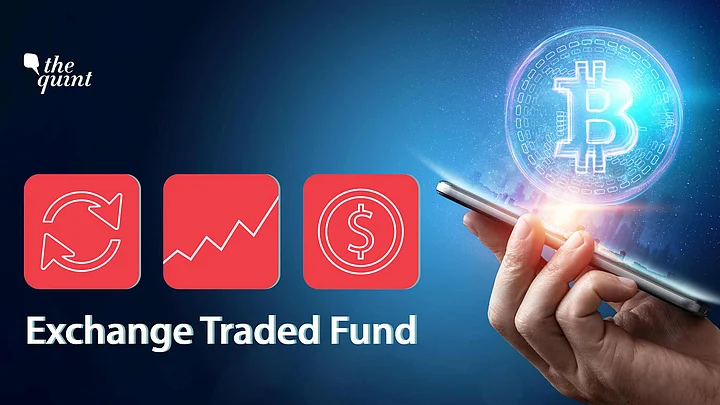Asia’s first Bitcoin and Ether futures exchange traded fund (ETF) will reportedly be launched in GIFT city, a Special Economic Zone in Gujarat, by March this year, if it gets regulatory approval.
Torus Kling Blockchain IFSC has signed a memorandum of understanding with India INX (the international arm of Bombay Stock Exchange) to develop digital asset-based financial products in India, Economic Times reported.
This comes as Bitcoin, along with other cryptocurrencies, saw a global crash this month, that wiped out over $1 trillion from the crypto market value.
What is an ETF? What does this mean for investors? Here's all you need to know.
What Is an ETF?
An exchange-traded fund (ETF), like a mutual fund, can be considered a 'basket of securities' that tracks an index, sector, commodity, futures or other assets.
What makes it different is that it can be traded on a stock exchange just like a regular stock. The ETF share prices fluctuate all day as it's bought and sold, unlike mutual funds that only trade once a day after the market closes.
What Are Crypto Futures?
Futures are 'derivative' financial contracts in which parties agree to exchange an asset (or the cash equivalent) at a future date and price, which are decided in advance.
The buyer must purchase and the seller must sell at the set price when the time comes. This allows investors to speculate about how an asset will perform, and make money off of that.
In the case of Bitcoin and Ethereum, a futures contract will allow investors to speculate on how the cryptocurrency will perform, without actually buying any cryptocurrency, since you can settle in cash.
A futures ETF is essentially a basket which contains futures as assets.
Asia’s First ETF for Cryptocurrencies
Torus Kling Blockchain IFSC, is reportedly an equal joint venture between financial management firm Kling Trading India and Cosmea Financial Holdings.
Along with the BSE's international arm India INX, it plans to launch the first Bitcoin and Ethereum Futures ETF outside the United States (US), along with Asia's first discount certificates tracking 'Metaverse' Large Cap stocks in the US and Europe, according to Economic Times.
Since cryptocurrencies are a relatively new asset class, this ETF will reportedly be launched in a sandbox environment, to test for emerging risks and correct them before they can affect a large number of investors.
Once the ETF gets regulatory approvals, investors will be able to invest in it using the Reserve Bank of India's liberalised remittances scheme, which allows Indian residents to freely send funds up to $250,000 outside India in a financial year.
What Does It Mean for Investors?
A cryptocurrency futures ETF will let investors speculate about the crypto market and potentially make returns from it, without directly buying the underlying cryptocurrencies.
This can cut out any issues of storage and security procedures, and risks that can come with buying cryptocurrencies on a crypto exchange.
However, it is worth noting that since a futures ETF won't directly track the spot price and will instead be tied to the future price of Bitcoin and Ether, its returns could be very different from the cryptocurrency's actual price.
An ETF that directly tracks cryptocurrency has not seen regulatory approval yet.
(With inputs from Economic Times.)
(At The Quint, we question everything. Play an active role in shaping our journalism by becoming a member today.)
